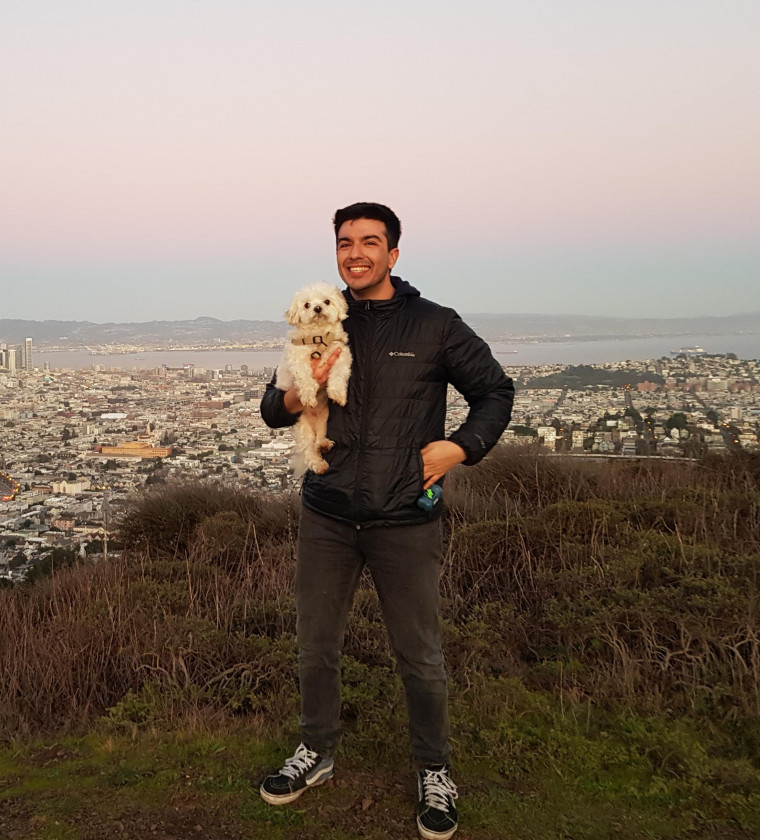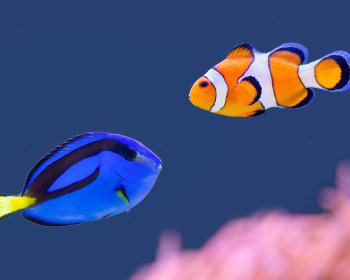Animal Law LLM Candidate, Diego Plaza Casanova, Starts Chilean Animal Protection Nonprofit
Open gallery

Our Animal Law LLM students come from around the world to study at the Center for Animal Law Studies (CALS) at Lewis & Clark Law School, and then they take the expertise they acquire in animal law back to their country of origin and start animal law there. Animal Law LLM candidate, Diego Plaza Casanova, is our first student from Chile and he’s already demonstrating how international students are expanding animal law across the globe. During his time studying at CALS, Diego started a nonprofit organization - Center for Chilean Animal Law Studies or “CEDA Chile” (which stands for “Centro de Estudios de Derecho Animal” in Spanish). We asked Diego to tell us about his new organization and how he plans to use his Animal Law LLM to help advance the legal interests of animals in Chile.
Q: How did you come up with the idea to start a Chilean animal protection nonprofit and what do you hope to accomplish through the founding of CEDA Chile?
A: Some years ago, I realized how important and urgent it is to dogmatically develop animal law in Chile. However, this kind of work was not being carried out in a specialized way by any organization. At some point, I proposed it to some animal NGO back there in Chile, but it did not prosper. Thus, when I decided to pursue the Animal Law LLM at Lewis & Clark, I already had in mind the creation of a Center in Chile dedicated to this purpose, which began operating in November last year.
At CEDA Chile, we intend to contribute to the development of animal law by creating legal studies that will allow us to identify problems, offer solutions, and provide remedies to address animal issues. Together with the above, we facilitate education and diffusion of content related to the legal treatment of animals in Chile and the world. All this, with the final objective of contributing to the generation of cultural conceptions that allow us to relate, in a more just and dignified manner, with non-human animals.
Q: What are the most pressing animal protection issues in Chile? How will CEDA Chile address them?
A: In general, it is necessary to recognize the sentience and the “non-human person” status of animals in the Chilean Constitution. There are also some “traditional” problems that deserve to be faced and solved, such as the use of animals in sports (rodeo, greyhound racing), for human entertainment (zoos), and even by the police as instruments of repression. I also believe that the industrial production of animals in agriculture and aquaculture are serious problems that need to be confronted as soon as possible.
In this sense, industrial animal agriculture is responsible for senseless animal suffering and serious environmental harms that are being suffered by the citizens. Thus, those communities located in the surroundings of confinement operation facilities see their watercourses, soil, subsoil, and air contaminated due to several emissions produced by these businesses.
At CEDA Chile, we intend to face these problems through the development of legal studies aimed at identifying solutions and creative courses of action. We are also working on the creation of a parallel NGO to carry out strategic litigation, intending to challenge these kinds of issues. Thus, CEDA Chile will be an essential partner in the legal analysis of those aspects underlying the cases in which the future organization will litigate on behalf of animal justice.
Q: You studied Law in the Pontificia Universidad Católica de Valparaíso, where you received your Bachelor in Legal Science degree. How did you decide to become an animal lawyer?
A: While finishing my law studies about five years ago, I realized that I wanted to dedicate my professional life to animals. However, I saw it as a distant dream, as I did not know where I could study animal law, nor how I could put my legal knowledge to the service of non-human animals. During that time, I read about Lewis & Clark on the Internet, and after three years of professional exercise, I decided to make a turn in my career and to apply to the Animal Law LLM Program.
Q: You worked in a Civil Court of Santiago de Chile for over three years, collaborating with judges in legal research-related functions and the drafting of written judgments. Based on that experience, what do you think is the best strategy for engaging the judiciary in animal protection issues?
A: I think it is necessary to intensify animal litigation in order to normalize the consideration of animal interests in the prevailing legal-procedural discourse. Thus, the judiciary should begin to get used to resolving animal protection cases, particularly in the criminal field, since crimes against animals are often relegated to a secondary level. This problem is also intensified by the priorities existing when prosecuting criminal offenses. And not only that, animal litigation should be extended to other areas, such as civil law, family law, consumer law, and environmental law.
Together with the above, I believe it is essential to use the media and social networks to publicize the filing of this type of lawsuits, the performance of the prosecuting authorities, and the attitude of the courts of justice towards these kinds of cases. I believe this strategy will make it possible to place animal protection cases in the middle of the public discussion, generating social pressure and eventually tending to cultural, jurisprudential and legislative changes that will allow, gradually, to liberate animals from the subjugation and exploitation set for human benefit.
Q: What are other upcoming animal issues that CEDA Chile hopes to address?
A: Along with continuing to pursue our mission as an organization, we plan to establish a new NGO dedicated to strategic litigation, activism, and direct action, aimed at confronting animal problems produced in industrial production, in “sports and entertainment”, and in various situations involving the confinement and restraint of these individuals.
We have also been in contact with different animal organizations, among which exciting possibilities of collaboration are being developed. Thus, for example, a few weeks ago, we entered into an alliance of animal NGOs that will work together to achieve the reconversion of the Santiago Metropolitan Zoo, which would imply the transfer of the confined species to various sanctuaries of South America and the world.
Finally, we would love to start developing a clinic work with law students from various universities, inspired by the impeccable work carried out by Kathy Hessler and Amy Wilson in the Animal Law Clinic.
Q: What has your experience been like coming to the United States and joining our community of animal advocates at CALS?
A: It has been an amazingly inspiring experience. I am very proud and grateful to be part of this program, to have been able to meet and learn from an incredible group of teachers -both academically and personally- and to have had the opportunity to connect with colleagues from around the world. I am convinced that professional connections are essential in this area of law, and that academic and professional collaboration is particularly productive on an international level.
Q: How has what you learned at CALS helped drive your work in CEDA Chile?
A: In general, having come into contact with this incredible group of people allowed me to believe in myself and in the project I had in mind, which was boosted by the tools that I have received from CALS. In particular, my experience as a member of Kathy Hessler’s Animal Law Clinic was crucial. Her work inspired certain aspects of the system used at CEDA Chile. I also have volunteered at a nonprofit organization founded by CALS’ Animal Law LLM Alumni and Fellow at CALS’ Aquatic Animal Law Initiative, Amy Wilson, which has allowed me to develop certain skills that are indispensable in the management of an NGO. In short, my experience at CALS allowed me to meet various people, including alumni, teachers and even clients, whose experiences guided my first steps in the NGO that I currently manage, and which hopefully will generate a positive impact on behalf of non-human animals.
To learn more, visit:
- CEDA Chile: Website: www.cedachile.com (English) / www.cedachile.cl (spanish)
- Podcast Narices Húmedas: Diego discusses CEDA Chile, CALS, Victoria Carriages, and the current state of Animal Law in Chile. https://open.spotify.com/episode/6praVnrQA8aGFrHGGZ5pBD
- “Animal Rights in Congress: What’s going on” by Mestizos Magazine (P. 24): Diego comments on the problematic situation of industrial agriculture and salmon farming as a legislative priority. https://www.flipsnack.com/Mestizosmagazine/mestizos-magazine-digital-73.html
More Center for Animal Law Studies Stories
Center for Animal Law Studies is located in Wood Hall on the Law Campus.
MSC: 51
email cals@lclark.edu
voice 503-768-6960
Center for Animal Law Studies
Lewis & Clark Law School
10101 S. Terwilliger Boulevard MSC 51
Portland OR 97219

